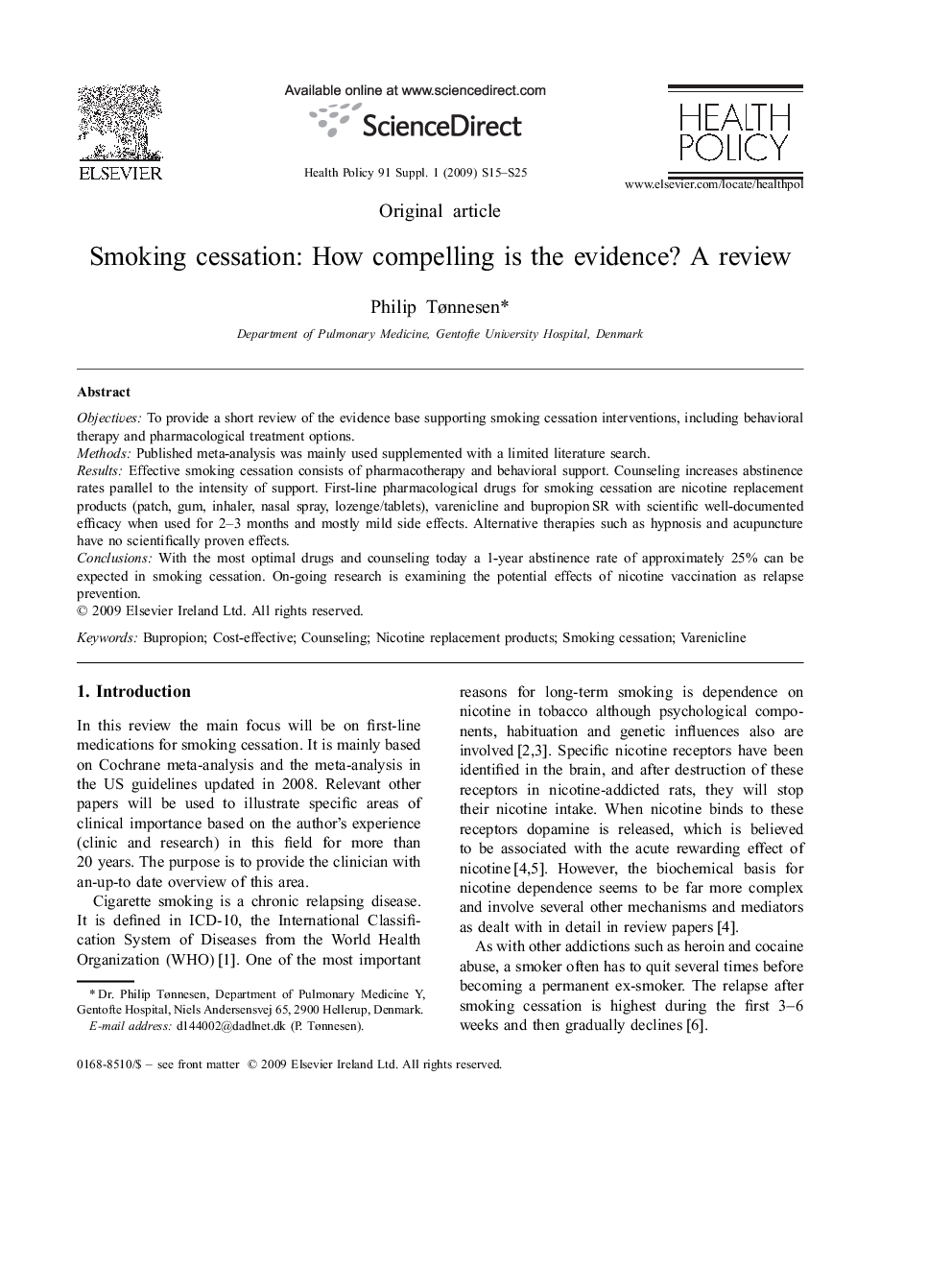| Article ID | Journal | Published Year | Pages | File Type |
|---|---|---|---|---|
| 4198465 | Health Policy | 2009 | 11 Pages |
ObjectivesTo provide a short review of the evidence base supporting smoking cessation interventions, including behavioral therapy and pharmacological treatment options.MethodsPublished meta-analysis was mainly used supplemented with a limited literature search.ResultsEffective smoking cessation consists of pharmacotherapy and behavioral support. Counseling increases abstinence rates parallel to the intensity of support. First-line pharmacological drugs for smoking cessation are nicotine replacement products (patch, gum, inhaler, nasal spray, lozenge/tablets), varenicline and bupropion SR with scientific well-documented efficacy when used for 2-3 months and mostly mild side effects. Alternative therapies such as hypnosis and acupuncture have no scientifically proven effects.ConclusionsWith the most optimal drugs and counseling today a 1-year abstinence rate of approximately 25% can be expected in smoking cessation. On-going research is examining the potential effects of nicotine vaccination as relapse prevention.
